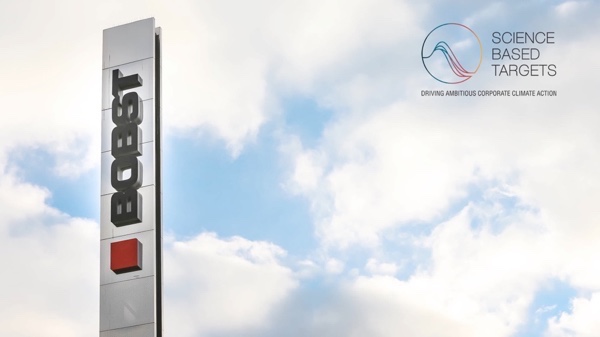Offset Printing
BOBST has joined the Science-Based Targets initiative (SBTi), reflecting commitment to climate

Tuesday 29. November 2022 - The SBTi is a partnership between CDP, the United Nations Global Compact, World Resources Institute (WRI) and the World Wide Fund for Nature (WWF), and is enabling businesses to set ambitious emissions reductions targets in line with the latest climate science.
BOBST has committed to set near-term company-wide emission reductions by joining the Science-Based Targets initiative (SBTi).
For BOBST, it is the next step on a journey towards greater sustainability, which the company has established as one of the four core pillars of its strategy and vision of the packaging industry, along with automation, digitalization, and connectivity. Having joined the initiative, BOBST is now in the process of formalizing the companys targets to align with the SBTi definitions and criteria and expects them to be approved next year.
More than 4000 companies are working with the SBTi to reduce their emissions in line with climate science. Signatories are required to set ambitious carbon reduction targets, which are independently assessed and verified, and align with the newest science and recommendations from the Intergovernmental Panel on Climate Change (IPCC). Companies must also disclose results on a yearly basis.
“With the recent IPCC climate report described as a code red for humanity, it is the moral responsibility of every business to commit to urgent climate action,” said Gabriel Migy, Head of Corporate Sustainability. “As a global supplier of packaging solutions, we know the components we purchase, the industrial sites we manage and the equipment we produce inevitably consume energy and generate emissions. Joining the SBTi will help us collaborate with our suppliers and customers and set goals to reduce our emissions in the long term across the whole value chain with pragmatic and scientific approaches.”
Of note, the carbon emissions generated by BOBST production sites represent only a fraction of its overall carbon footprint. Around 90% of greenhouse gas emissions associated with BOBSTs activities occur downstream in the value chain, through the use of sold products. This highlights the need to work collaboratively and for BOBST to play a key role in the design, maintenance and operation of its machines to lower their environmental impact during their lifetime, jointly with customers.
“We know that real change is only possible through collaboration and everyone pulling in the same direction, which is why initiatives like the SBTi are so essential,” said Gabriel Migy “We look forward to aligning with all other stakeholders who are committed to science-based approaches to climate action.”
